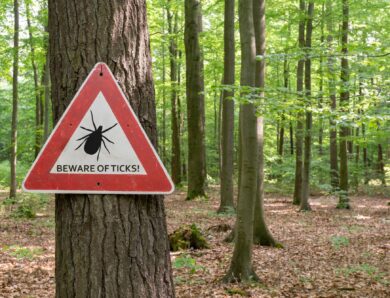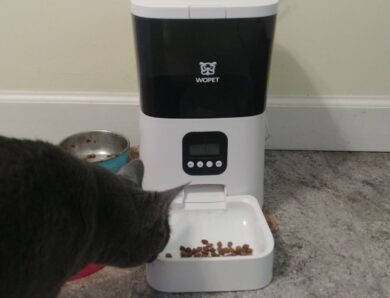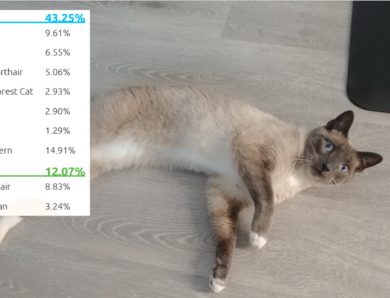
Pet Adoptions: 6 Reasons To Adopt, Not Buy
In 2018, approximately 3.2 million shelter animals were adopted by pet-loving people in the United States. Anecdotal evidence suggests numbers are higher today as more people are aware of the benefits of pet adoption versus purchasing.
The rewards of pet adoption cannot be overstated; from getting a healthier, happier pet to reducing the demand for store-bought animals that drives the puppy and kitten mill markets.
Here are just six reasons you should adopt your next pet, instead of buying.
1. You’re Saving a Life
Any cat or dog that has found its way into an animal shelter is living on borrowed time. And there are lots of them. According to the ASPCA, approximately 3.3. million dogs and 3.2 million cats enter U.S. animal shelters every year.
Euthanasia statistics in shelters have declined over the past several years. Yet many animals (about 1.5 million annually) are still killed if they can’t be homed in a month or two.
This is especially true for older animals, cats and dogs with special needs, and black cats, all of which are often eschewed by would-be adopters. Yet they are some of the most loving animals you can bring into your home. (Adult animals, by the way, make great pets and what you see with them is what you get. You don’t have to worry about their personalities changing as they move from kitten- or puppyhood to adult.)
Choosing a pet from a shelter saves that animal from almost certain death.
Even when you’re adopting a pet from a rescue group, you’re still saving lives. Not only are you giving your new pet a better home, but you’re also opening up space at the group for another animal. Rescue groups often save animals from kill shelters; the more open spots they — or someone who fosters for them — have, the more lives they can save.
2. Reduce Demand for Mills
Puppy and kitten mills are hell on earth for the animals stuck living there. And no matter what they try to tell you, any pet store selling puppies and kittens got them from a mill.
A puppy or kitten mill’s sole purpose is to make money by forcing female animals to have as many babies as possible, as often as possible. Quality of life is not a consideration, and these moms lead unhappy, miserable lives. Living in small cages, rarely permitted out to exercise or socialize, these moms (and the breeding males), only know the dimmest of lives.
The more people turn to adoption for their puppy or kitten, the less demand there is for pet stores to sell them, and the less money these mills can make. There are enough fur babies out there in need of a home; there’s no need for anyone to be raising even more of them for no good reason.
3. They Are Not “Problem” Pets
A common misconception about shelter animals is that they are somehow bad or flawed. That’s rarely the case. In many cases, the dog or cat was abandoned by an irresponsible owner who couldn’t be bothered anymore. Other times, an elderly person either moved into a nursing home or passed away. Other reasons can include divorce, loss of income, or a natural disaster.
In all these cases, the dog or cat was not at fault and just wants to find a loving home.
And, of course, there are the innumerable stray cats (March to October is kitten season!) and dogs that wind up in shelters as well.
4. You’ll Get a Happier, Healthier Fur Baby
All well-loved cats and dogs are happy, but anyone who’s ever had a rescue animal (particularly one rescued as an adult) can tell you they just seem to understand how lucky they are. We have one cat we picked up off the street when he was two or three years old. When compared to our other cats, all rescued as kittens younger than four months old, he displays an appreciation for his life that the others don’t.
Additionally, because most rescues are mixed breeds, they’re typically healthier than a dog or cat you get from a store or breeder. This is partly because most purebred animals have inbred health issues to watch out for. And animals that came from stores (ie mills) can have all kinds of health problems.
Mutts and domestic shorthair housecats (the feline equivalent of a mutt) generally don’t have the same issues.
5. It Costs a Whole Lot Less
Adopting a cat or dog is less expensive than buying a pure breed from a breeder (much, much less) or purchasing at a pet store. While any good rescue organization will ask you to pay a portion of the cost of the animal’s spay/neutering and medical care, there’s rarely much else involved. Typically, you’ll pay between $50 and $150 to adopt. (Adopting a pure-bred rescue will sometimes cost more due to higher expenses incurred by the rescue group.) Buying, whether from a store or breeder will set you back at least $1,000 and often higher.
Additionally, it’s quite common for animals bought at pet stores to have medical problems (thanks to those heartless mills), so there’s often an unexpected medical expense upfront as well. You may run into something similar with a shelter pet (so much exposure to other dogs and cats is rarely healthy), but it’s less likely when you work with a rescue group.
6. It’s Just the Right Thing to Do
Does anyone remember the TV commercial with the guy who keeps trying to pick up women with cheesy lines but nothing works until he tells someone he donated his bone marrow? When something is just the right thing to do, the universe takes note.
You’ll get more compliments from other dog and cat lovers and reap more karmic rewards for adopting than you ever will for shelling out big bucks in a store or with a breeder.
Now that you’re ready to adopt your new fur baby, it’s time to start thinking about naming your pet.
1 Comment
Comments are closed.






I love how this website is becoming richer and richer with interesting insights and information.